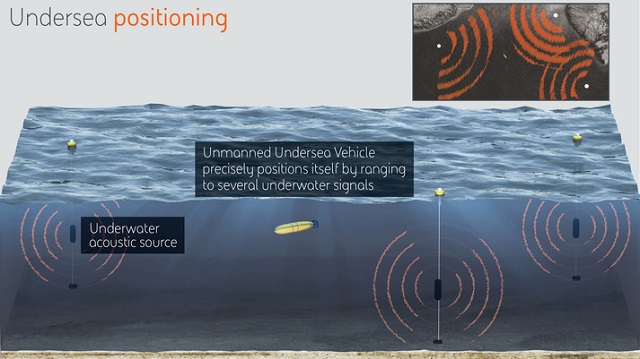Russia Readies Underwater Monitoring System
A network of autonomous submersibles is being established on Russia’s Arctic shelf, according to local media reports.
The Positioner underwater navigation system developed by Concern Oceanpribor can enable unmanned submersibles to patrol waters at depth of up to eight kilometers (five miles). The submersibles can accurately determine their location down to millimeters and exchange data with air, water and ground-based control stations in real time.
The system will soon be set up near the Prirazlomnaya offshore oil platform, the Izvestia newspaper reports.
The company's future projects include a global information network-centric system for underwater monitoring and maintenance of oil production areas.
Russian media cite Vadim Kozyulin, professor of the Academy of Military Sciences, as saying that the Russian system will compete with a similar U.S. project, POSYDON, to be first tested in 2018.
The U.S. Defense Advanced Research Projects Agency (DARPA) has selected BAE Systems to develop an undersea navigation system aimed at enhancing the U.S. Navy’s ability to provide precise, global positioning throughout the ocean basins. The contract will support a program called the Positioning System for Deep Ocean Navigation (POSYDON), which seeks to allow undersea vehicles to accurately navigate while remaining below the ocean’s surface.
POSYDON aims to replace current navigational methods that pose a detection risk for undersea vehicles forced to surface periodically to access the space-based Global Positioning System (GPS), which cannot sufficiently penetrate seawater. In addition, access to above-water GPS may be denied by hostile signal jamming. Under DARPA’s POSYDON program, a BAE Systems-led team will create a positioning, navigation and timing system designed to permit vehicles to remain underwater by using multiple, integrated, long-range acoustic sources at fixed locations around the oceans.
The company will leverage its expertise and capabilities in signal processing, acoustic communications, interference cancellation, and anti-jam/anti-spoof technologies for the program. Other members of BAE Systems’ POSYDON team are the University of Washington, the Massachusetts Institute of Technology, and the University of Texas at Austin.

